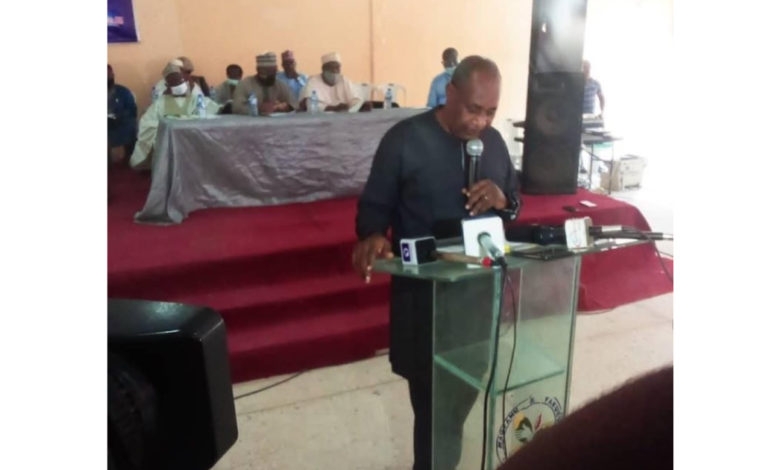Southern Kaduna Leaders In Peace Jaw-Jaw With Hausa Fulani

There is a glimmer of hope that the peace that has eluded communities in Southern Kaduna might return soon.
On August 20, leaders of the indigenous Atyap communities of Southern Kaduna and those of the Fulani and Hausa communities in Zangon-Kataf Local Government Area of the state convened a reconciliation meeting aimed at ending recurring violence between the different ethnic groups.
The peace parley was held at Mariyamu and Yakubu event centre in Ungwan Wakil. Representatives of the ethnic groups at the meeting agreed to sheath their swords, forgive one another and assist security agencies in apprehending the criminal elements.
The meeting discussed possible modalities for the return of displaced persons and recommended the establishment of a standing peace committee with representatives of all the ethnic groups.
The indigenous people of Atyap chiefdom were advised not to visit their grief and frustrations on their neighbours but to rather channel their grievances to constituted authorities.
The terms of the peace agreement were made public hours after the state government reviewed the curfew that was in place in Zangon Kataf and Kauru Local Government Areas of the state.
Governor Nasir El-Rufai of Kaduna State on Monday, August 24th, expressed satisfaction with the outcome of the parley. The peace meeting was brokered by the Chief of Atyap, Dominic Gambo Yahaya.
The governor, who spoke in an interview with newsmen shortly after a closed-door meeting with the Sultan of Sokoto, Mohammed Sa’ad Abubakar, said his concern had always been how people could live in peace with each other in the state.
In a dramatic contrast, armed men on motorcycles invaded Damba-Kasaya Community in Chikun Local Government Area of Kaduna State on Monday and killed one person while abducting scores of Junior Secondary School (JSS 3) students who were taking their external examinations.
The Presidency last July blamed “politically motivated banditry, revenge killings, and mutual violence by criminal gangs acting on ethnic and religious grounds” for the wave of deadly attacks in the southern Kaduna State.
The violence in Southern Kaduna has spanned decades with both military and civilian governments setting up various commissions of inquiry, panels of investigation as well as committees of conflict resolution to end the killing spree.
In a report released on Monday, Amnesty international said armed men killed at least 366 people in multiple attacks between January and July 2020 in Southern Kaduna.
Reacting to the peace and reconciliation agreement among the ethnic groups in southern Kaduna, some Nigerians on the microblogging site Twitter expressed hope that the effort yields positive dividends amid cynical tones.
A user of the site replied a post on the peace communique saying
“We pray for peace but to me, this resolution does not discuss nor proffer a solution to the underlying issues that have been the bane of this unrest over the years”.
https://twitter.com/oil_shaeikh/status/1297477060919734273?s=20
Another user expressed his reservation with the process
“I am sorry to say but it might just be a waste of time. There should be penalties backed by legislation to be meted out on bandits who disturb the peace. There are reps in the house from SK(Southern Kaduna) abi? They should draft laws for the state to pass.
All I read here is just vibes”.
https://twitter.com/Ekene____/status/1297488487583748096?s=19
Support Our Journalism
There are millions of ordinary people affected by conflict in Africa whose stories are missing in the mainstream media. HumAngle is determined to tell those challenging and under-reported stories, hoping that the people impacted by these conflicts will find the safety and security they deserve.
To ensure that we continue to provide public service coverage, we have a small favour to ask you. We want you to be part of our journalistic endeavour by contributing a token to us.
Your donation will further promote a robust, free, and independent media.
Donate HereStay Closer To The Stories That Matter




